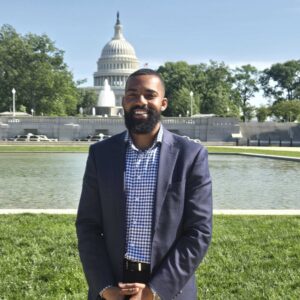For nearly two years, federal, state and local data has driven our awareness of the pandemic and the progress we have achieved. It has spurred renewed interest in what data is collected and how it can be made more easily and readily available for local leaders to make critical decisions and craft policies on public health, the economy, education and beyond.

The Federal Advisory Committee on Data for Evidence Building (ACDEB) was established in 2020 as a result of the Foundations for Evidence-Based Policymaking Act of 2018 to “review, analyze and make recommendations to the White House Office of Management and Budget Director on how to promote the use of federal data for evidence with a particular emphasis on evaluating the need for and value of a National Secure Data Service (NSDS).”
The NSDS is a proposed service to facilitate data across government to support government-wide evidence-building activities. Evidence-building includes the use of federal data collected directly or administered programs to drive research and support policymaking and decision-making. One key aspect is exploring the use of administrative data to replace or supplement declines in response rates to traditional government surveys.
The Committee is comprised of representatives from across federal, state and local government, academia, nonprofits and the private sector. It recently released its Year 1 report outlining a vision for data service to make federal data more accessible across the following focus areas:
- Legislation and regulation
- Governance, transparency and accountability
- Technical infrastructure
- Government data for evidence building
- Other services and capacity-building opportunities
There are nearly 130 federal agencies or units that engage in statistical activities and provide administrative data for statistical purposes that are overseen by 13 principal statistical agencies. The key to the Evidence Act was to strengthen the relationship between the data users and providers across the public and private sectors and across levels of government. Over the course of its first year, the Advisory Committee has come to acknowledge that a National Secure Data Service should be a:
- Philosophy: A mission to promote and make it easier to use federal data for research and government policymaking and decision-making
- Service: A National Secure Data Service that coordinates and provide capacity-building services for data users across levels of government and non-government organizations
- Place: A federal government entity sits that sits within a larger ecosystem of hardware, software and administrative infrastructure
What’s in Store for the Future?
Federal agencies and entities are expanding efforts to support COVID recovery and prepare for the next pandemic. Statistical agencies are looking for ways to make data available at lower levels of geography. For example, in FY2023, the Centers for Disease Control and Prevention (CDC) plans make public health data available for sub-county levels of geography, such as a city.
Plans are underway to stand up a federal data concierge service to facilitate technical assistance and identify relevant data sources that can support short-staffed state and local governments.
What Can Cities, Towns and Villages Do to Get Involved?
- Be aware of and support ongoing surveys and data collection efforts beyond the decennial census, such as the annual American Community Survey, Annual Survey of Public Employment and Payroll and the Quarterly Summary of State and Local Tax Revenue.
- Provide input on Federal Register notices that ask for state and local government input on federal data use and surveys.
- Read the ACDEB’s Year 1 report and share your ideas and challenges with using and accessing federal data with NLC by completing this form.
What Resources are Available to Ask Questions and Find Answers?
- Ask.Census.gov – search FAQs about Census and related data and submit your own questions
- Census State Data Centers – connect with research universities and data users in your state
- The Opportunity Project at Census – connect with companies, nonprofits and universities to build new tools to solve real-world problems using federal data
Let NLC deliver for you!
The National League of Cities (NLC) is your partner in recovery. This is the time for America to do more than survive; we can thrive.
NLC is a strategic partner for local leaders and municipal staff, serving as a resource and advocate for communities large and small. Click the button to learn how NLC can help deliver for your city.










